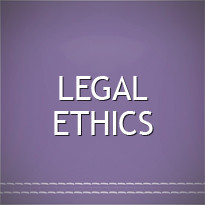A.M. No. RTJ-20-2579 – Legal Ethics – Judicial Ethics – Serious Misconduct – Gross Ignorance of the Law
Political Law – Constitutional Law – Bill of Rights – Illegal Search and Seizure – Fruit of the Poisonous Tree – Exceptions; Independent Source, Inevitable Discovery – Right to Privacy of Government Employees
Law on Public Officers – Right to Privacy of Government Employees
In 2018, a laptop was assigned to Edralin C. Reyes as acting judge of RTC 39, Roxas City. In 2019, the laptop was turned over to Judge Josephine Caranzo upon her appointment as judge of RTC 39. Judge Caranzo however submitted the laptop to the Supreme Court’s Management Information Systems Office for repair.
In 2020, the MISO, while examining the laptop, uncovered several exchanges of messages between Edralin and certain lawyers (Atty. Eduardo M. Magsino, Atty. Marlo E. Masangkay, Atty. Lysander Lascano Fetizanan) which revealed that Edralin was engaged in corrupt practices. There were even conversations with one politician (Mayor Joselito Malabanan) which likewise had corruption undertones. Such corrupt practices involve soliciting money from lawyers and litigants in exchange of favorable court actions, asking “pabaon” for Edralin’s official business, and misappropriating seized evidence such as firearms which were not turned over to the police for proper disposition after the termination of their cases.
The MISO indorsed the matter to the Office of the Court Administrator and after conducting an investigation recommended the dismissal from the service of Edralin.
In his defense, Edralin argued that the evidence against him should not be admitted for being a fruit of the poisonous tree.
ISSUE: Whether or not Edralin’s argument is valid.
HELD: No.
The right to privacy is a fundamental right against the State’s intrusion into personal matters. To implement the right, our Constitution guarantees every person the right to due process, to be secure against unreasonable searches and seizures, and to the privacy of their communication and correspondence. However, Edralin cannot invoke the same in this case.
The doctrine of the fruit of the poisonous tree is an exclusionary rule which basically states that an evidence illegally obtained shall not be used in any proceeding. However, the rule admits of certain exceptions which are: (1) The Independent Source Exception and (2) The Inevitable Discovery Exception.
In this case, the SC used the Inevitable Discovery Exception as it appears that the PNP was already investigating the matter as early as April 2019 by reason of a CIDG Memorandum. As such, even without the judicial audit conducted by the OCA, the SC would have inevitably found out about Edralin’s corrupt acts since the PNP would have informed the SC anyway of its findings against Edralin.
Further, Edralin has no reasonable expectation of privacy in using a government-issued laptop. The Supreme Court’s policy is clear that there should be no expectation of privacy in court-issued computers:
Section IX.3. No Privacy in Electronic Communications.
Users must never consider electronic communications to be private or secure. E-mail and other electronic communications may be stored indefinitely on any number of computers other than the recipient’s.
The Supreme Court reserves the right to monitor and/or log all network-based activities. The user is responsible for surrendering all passwords, files, and/or other required resources if requested to do so in the presence of his/her Office Head, or persons properly authorized by the Court. (Computer Guidelines and Policies, A.M. No. 05-3-08-SC, 15 March 2005)
With the foregoing, Edralin cannot invoke that there has been an invasion of his privacy.
By his actions, Edralin is guilty of Grave Misconduct, Simple Misconduct, Gross Ignorance of the Law, Serious Dishonesty, and Gross Immorality. He is dismissed from the service and his benefits were forfeited.
Atty. Eduardo M. Magsino, Atty. Marlo E. Masangkay, Atty. Lysander Lascano Fetizanan, and Mayor Joselito Malabanan were directed to be investigated. Meanwhile, Atty. Crisalyn B. Lumanglas, Amor Macahilos-Fajardo, and Judge (former Prosecutor) Glenn Paul D. Armamento were directed by the Supreme Court to explain why they should not be administratively charged for their involvement in the corrupt acts of Edralin.
Notes:
What is the Independent Source Exception?
This is a doctrine which admits evidence that was discovered through an independent source sufficiently distinguishable to be purged of the primary taint. If the evidence is not obtained directly from the violation, it is freed from the initial taint of the violation. Example: an admission to someone who had no participation in the illegal arrest or search.
What is the Inevitable Discovery Exception?
This exception provides that information obtained illegally is not absolutely inadmissible under the fruit of the poisonous tree doctrine where it is shown that such evidence would have been inevitably gained even without the unlawful act. Example: an individual whose house was unlawfully intruded into by police officers but made an uncounseled confession to the police that he/she killed someone and buried the victim’s body near his/her house. Ordinarily, the uncounseled confession may not be used against him/her for being a fruit of the poisonous tree but such may not be invoked since (and so long as the circumstances warrant) the discovery of the victim’s body near the house of the accused would have naturally led law enforcement authorities to undertake a more thorough investigation of the site, particularly in those areas where the victim was last seen even without the uncounseled confession of the accused.


